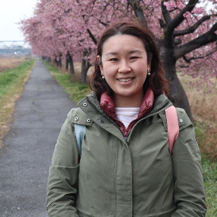Japan’s Immigration Incentives for Highly Skilled Foreign Professionals
Japan’s Immigration Incentives for Highly Skilled Foreign Professionals
As Japan faces the challenges of an aging population and a declining birth rate, boosting productivity and innovation through the active recruitment of highly skilled foreign professionals has become a crucial national goal. Similar strategies exist in OECD countries, where systems are in place to attract global talent, and Japan is taking further steps to stay competitive in this field.
Key Incentives for Highly Skilled Foreign Professionals in Japan
To attract foreign professionals, Japan has developed several specialized visa options and incentives:
- Highly Skilled Professional Points System (2012) – initially under the “Designated Activities” visa
- Highly Skilled Professional Visa (2015) – introducing Japan’s first visa for highly skilled talent
- Incentives for Foreign Financial Professionals (2022) – specifically for finance-related roles
- J-Skip: Japan System for Special Highly Skilled Professionals (2023)
- J-Find: Future Creation Talent (2023)
The perks available under these visas include fast-track permanent residency (as quickly as one year), spouse work permits, extended stay permissions for parents (for childcare), and allowances for accompanying household staff.
Highly Skilled Professional Visa (2015)
The Highly Skilled Professional (HSP) Visa, launched in 2015, is Japan’s primary visa for highly skilled foreign workers in specialized fields, such as academia, engineering, finance, and executive roles. Applicants are evaluated using a points-based system that factors in income, academic qualifications, professional experience, and other qualifications. Those who score at least 70 points can benefit from accelerated permanent residency, spouse work permits, and extended stay permissions for family members.
Incentives for Foreign Financial Professionals (2022)
Japan also offers unique incentives for foreign financial professionals, aiming to position itself as a global financial center. Eligible finance professionals can earn 10 bonus points under the Highly Skilled Professional Points System. Additionally, high-income financial professionals can sponsor up to two household staff members, a nod to expatriates relocating from financial hubs like Hong Kong, where having household help is common.
Special Highly Skilled Professionals (J-Skip) – Launched 2023
In 2023, Japan introduced J-Skip (Japan System for Special Highly Skilled Professionals), offering enhanced incentives to qualified foreign professionals. Those with a certain level of education and income may qualify for a five-year residency status under the HSP visa, enjoying even more benefits than the original HSP visa.
Future Creation Talent (J-Find) – Launched 2023
The J-Find program enables recent graduates from top foreign universities to explore employment or entrepreneurial opportunities in Japan. This program aims to provide a foothold for young, talented individuals interested in working or starting a business in Japan.
Incentives for Highly Skilled Foreign Talent in OECD Countries
Several OECD countries, including the United States, Canada, Germany, Australia, and Singapore, have developed comparable visa and residency systems to attract highly skilled professionals. Below are examples of these programs:
United States: EB-1 and EB-2 Visas
The EB-1 visa offers U.S. permanent residency to highly skilled individuals, including those with extraordinary abilities, outstanding professors, researchers, and executives. Notably, EB-1 applicants do not need labor certification. The EB-2 visa caters to individuals with advanced degrees or exceptional abilities in fields beneficial to national interests, often with a labor certification requirement unless a national interest waiver applies.
Canada: Express Entry
Canada’s Express Entry system ranks skilled workers based on language proficiency, education, and work experience through a Comprehensive Ranking System (CRS). It includes three main programs: the Federal Skilled Worker Program, the Federal Skilled Trades Program, and the Canadian Experience Class. Unlike Japan’s HSP visa, applicants may qualify for Canadian residency without a job offer.
Germany: Skilled Workers Visa (Fachkräfteeinwanderungsgesetz)
Germany launched the Skilled Workers Immigration Act in 2020, facilitating entry for highly skilled non-EU workers. Applicants must have recognized qualifications and demonstrate German language proficiency. A specific job offer is required for entry, making this system particularly effective in sectors facing workforce shortages, such as healthcare, IT, and engineering.
Australia: Skilled Worker Visas (Subclass 189 and 190)
Australia offers Skilled Independent (subclass 189) and Skilled Nominated (subclass 190) visas based on a points system that includes age, English proficiency, work experience, and education. These visas do not require an employer or state sponsor unless applying under subclass 190, which requires a nomination from a specific Australian state or territory.
Singapore: Employment Pass (EP) and Personalized Employment Pass (PEP)
Singapore’s Employment Pass (EP) targets highly skilled professionals, managers, and executives who meet a minimum salary threshold (currently SGD 3,900, subject to change based on experience). The Personalized Employment Pass (PEP) provides additional flexibility, allowing high-earning professionals to change employers without needing to reapply for a visa, provided their annual income exceeds SGD 144,000.
As Japan enhances its immigration system to attract highly skilled foreign talent, its visa options continue to provide new avenues for professionals in academia, finance, and other sectors. For those interested in moving to Japan, these incentives represent an opportunity to contribute to and benefit from Japan’s economy while enjoying streamlined pathways to residency.
Professional
 Masakazu Murai
Masakazu Murai
18 years’ experience in Investment Banking at Mitsubishi UFJ Morgan Stanley (JV, MUFG Bank and Morgan Stanley). He had provided financial advisory more than 500 entrepreneurs and senior management.
During his tenure, he worked as an employee union executive committee member in promoting diversity, including the active participation of foreigners and women in the office, and engaged in activities to improve the working environment. He specializes in financial consulting and VISA/PR consulting.
Gyoseishoshi Immigration Lawyer
CMA(Japanese financial analyst license)
CFP (Certified Financial Planner)
Master of Business Administration in Entrepreneurship
相談してみる











